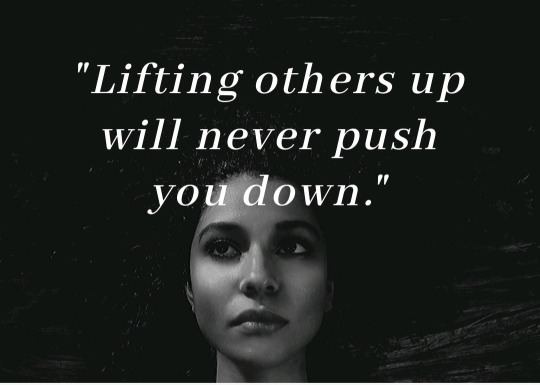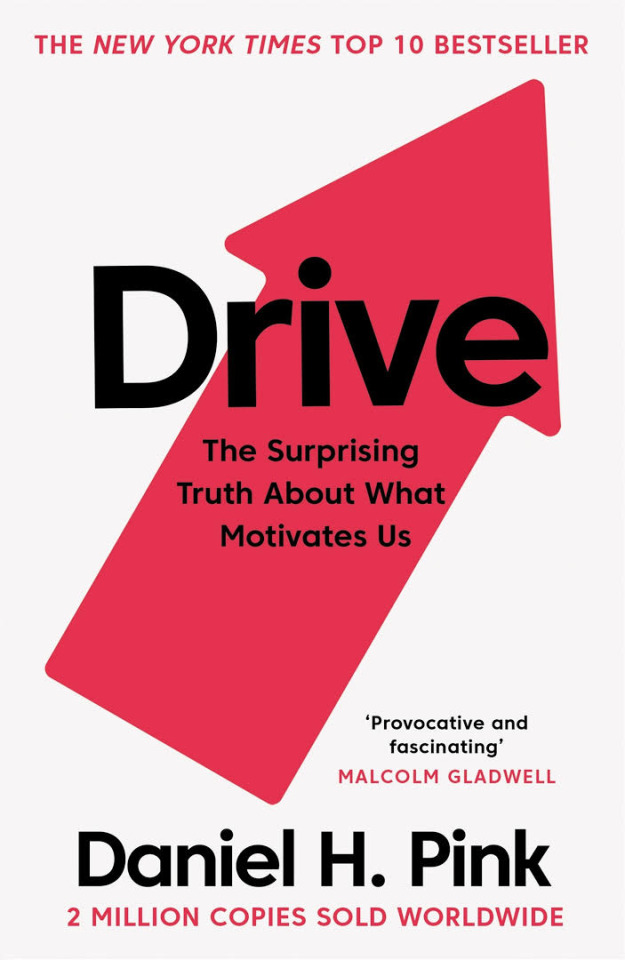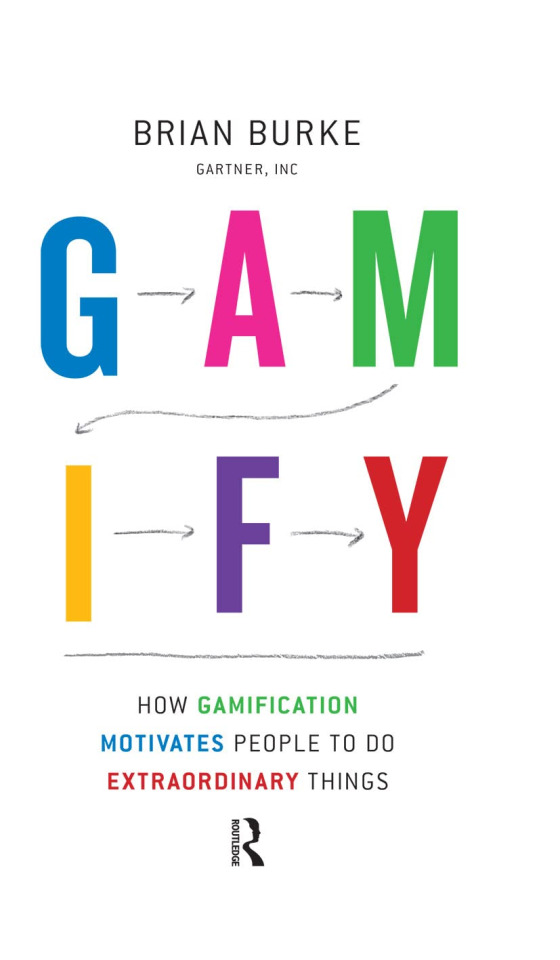#intrinsic motivation
Note
hi! im an entj and i wanted to know if you have any tips on how to be a better student whilst not thinking too much about grades or results. i feel like i place alot of emphasis on grades and results and i think it often hinders me at times. i often have trouble finding more ''meaning'' in my work and i'm not sure how to add more value into it other than achieving a good grade.
Your question is too vague because you haven't specified what level of schooling you're at and what your idea of a "better" student looks like. This "hinders you" how exactly? What is the exact nature or source of your discontent? What exactly are you aiming for? Without this context, it's hard to craft a response.
Did you know that professors in the US are witnessing a "literacy crisis" in their students that has never before been observed in the history of modern education? While there have always been unmotivated and underachieving students, nowadays, an alarming percentage of motivated students are barely able to handle more than ten pages of text at a time (the average assignment used to be 20-30 pages), nor are they able to analyze and comprehend the meaning, themes, or arguments being communicated in the text.
A literacy deficit poses a serious threat not just to the student's individual success, but also to the integrity of higher education and the functioning of society. Colleges have no choice but to "dumb down" their offerings over time. But more importantly, a successful democracy is difficult to sustain without intelligent and literate citizenry making sound judgments about complex social, political, and economic issues.
One obvious factor contributing to this problem is that many students have fallen behind due to the pandemic. Another obvious factor is the smartphone and the major role it has played in decimating people's attention spans. Extended focus and concentration are extremely important for learning, but endless internet scrolling trains the mind to expect rapid change and crave instant gratification. Yes, anyone who genuinely wants to be a good student should care deeply about the factors that hinder/inhibit their learning process. Increasingly, misuse of technology, such as smartphone addiction and excessive reliance on AI, is a major factor that prevents students from reaching their greater potential.
High school and college students are still in the early stages of ego development. Since their self-awareness hasn't had much time to develop, they don't tend to be aware of their own underlying motivations, for example, they will often just do something because it's just what everyone around them does. Additionally, heavy social media consumption at this stage of life leads them to believe that "success" is just for show or about obtaining likes/praise.
This brings us to the main factor to consider, which is that students are increasingly trained to be motivated by extrinsic rewards. For example, in the US, school funding is often tied to exam scores, so teachers have been forced to focus more and more on teaching only to exams, in order to secure funding. Higher education has also become much more competitive, which means excellent grades are essential for securing a seat in university.
While there is nothing wrong with extrinsic motivation per se, there is something wrong when a person is only motivated by extrinsic rewards, to the point where they are completely ignorant/neglectful of intrinsic rewards. The research strongly suggests: People who are more intrinsically (than extrinsically) motivated tend to be better learners because they assign their own value to learning and understand the inherent virtues of intellect, knowledge, and skill, apart from their real-world applications. The topic of intrinsic motivation comes up often, I suggest you read past posts.
Before you asked me for "tips", did you put in a reasonable effort to inquire into yourself and figure out why you overemphasize extrinsic rewards? Could you come up with the reasons/causes on your own, through self-reflection? It's difficult to find the right solution to a problem when you don't understand its origins. This is an important point because a common symptom of extreme extrinsic motivation is abnormally low self-awareness due to having little to no inner life. How's your inner life?
With regard to type development, people who are very extrinsically motivated tend to a) be too easily influenced by environmental factors, and b) lack introverted development. The answer to your question already lies within you, specifically, in the state of development of your introverted Ni and Fi functions:
1) Extrinsically motivated people tend to believe that their life lacks meaning because the world lacks meaning. What they don't realize is that meaning starts from within, so the actual problem is that they aren't able to generate enough meaning on their own.
Ni is a key function for constructing meaning, usually through patiently exploring context and connections to a bigger picture (of life as a whole and/or the world at large). As such, lack of Ni development commonly manifests as:
dislike of ambiguity (due to preferring clear categorical answers)
impatience for complexity (due to wanting easy answers)
superficiality (due to not going beyond the known/obvious)
lack of vision (due to overemphasis on rapid results)
Since you didn't provide any details about function development, I can't speak to how much you struggle with the above issues. The only thing I can say is that all of them are detrimental to learning. Clarify your aim: Do you want to be a good student in school or a good learner in life? Do you know the difference? It is the difference between lower order versus higher order learning, which I have already explained in previous posts.
A good student wants to know the final answer. A lifelong learner uses ambiguity as an opportunity to explore more nuanced truth.
A good student can handle some challenges but stops at the most difficult point. A lifelong learner takes the initiative to unravel complexity and eventually encounters profound wisdom.
A good student reads the book all the way through. A lifelong learner is intellectually curious, which leads them to discover new realms of knowledge far beyond the book.
A good student follows instructions and is reasonably competent as a result. A lifelong learner sees the greater potential of the field as a whole and gradually becomes an expert as they attempt to realize that potential.
If a certain activity or subject matter doesn't hold any meaning for you, is it because it's boring, or is it because you haven't really given it a proper look? This isn't to say that you have to be an expert on everything; it is only to say that you won't be able to truly appreciate something until you dig deeper into it and actively nurture appreciation for it. This brings us to the second point...
2) Extrinsically motivated TJs tend to believe that "utility" is the only measure of value. What they don't realize is that value is inherent to existence, so the actual problem is an inability to recognize value.
Fi is a key function for assigning value, usually through forming uniquely personal and intensely emotional attachments. As such, lack of Fi development often manifests as:
taking things for granted (due to not honoring their value)
dismissive attitude (due to lack of emotional attachments)
passionless existence (due to fear of emotional intensity)
Again, I can't speak to how much you struggle with the above issues. I can only inform you that they also tend to be quite detrimental to learning:
Human beings need to stay fed and sheltered in order to survive, but they also need activities that affirm their humanity and enrich their life. What happens to learning if your only concern is securing a comfortable material life?
Human beings learn best through feeling deeply moved and inspired by the best of what humanity has to offer. What happens to learning if you remove the human component of knowledge and only treat it as "data", just another object for your consumption and disposal?
Human beings discover themselves and express themselves through their varied interests, which is how every subject comes to have its fans, devotees, and experts. What happens to learning if you refuse to take an interest, downplay enthusiasm, and temper or repress passion?
If a certain activity or subject matter doesn't hold any value for you, is it because it is "worthless", or because you are blind to its value? This isn't to say that you must love everything; it is only to say that you won't be able to know yourself truly and feel energized about learning as long as you have a habit of dismissing every aspect of life that isn't immediately or practically "useful" to you.
Having intrinsic motivation basically means you generate your own personal reasons for learning. Nobody can force you to care or take an interest. Becoming an adult means you have to be the one to realize the virtues of going above and beyond whatever is required to ace exams. It may all sound very abstract, but this makes the difference in determining whether you will end up being just another cog in the machine of society or whether your life will always feel imbued with a greater sense of meaning.
26 notes
·
View notes
Text

Lower Elementary - Grammar
This student is working with the Grammar materials to identify and understand the parts of speech for the sentences he has written. The parts of speech are represented by shapes and colors, each having a special meaning. For example, the symbol for a noun is a large black triangle, while the symbols for an article and an adjective are smaller triangles of differing colors to show they are modifying the noun. The symbol for a verb is a large red circle (implying a ball, or movement, since verbs describe action), and the symbol for an adverb is a smaller orange circle, showing that it is related to the verb. These hands-on materials provide an interesting way for students to understand these abstract concepts.
#hands on learning#experiential learning#focus#order#concentration#coordination#independence#confident learner#competent learner#academically prepared#language#intrinsic motivation#tma#montessori#private school#arlingtontx#arlington#texas#infant#nido#toddler#early childhood#preschool#kindergarten#elementary#education#private education#nontraditional#the montessori academy of arlington
9 notes
·
View notes
Text
The Art Of Intrinsic Motivation
In the 1999 World Rowing Championships, James Tomkins and I had the chance to showcase our teamwork and skill in St Catherines, Canada in the coxless pair event.
Prior to our success I have a vivd memory of sitting under a tree days out from the final. I was just enjoying a deep sense of connection to nature. I reflected on what was ahead of with the final race of the season, the wonderful…

View On WordPress
2 notes
·
View notes
Text
What would they wish for?
I'm curious. Ugly Betty world. Choose a character, and tell me what their ultimate-deep-down-in-their-heart wish would be. And if it were granted, how would it affect their world, who they are, and their role/interactions in the Ugly Betty universe.
Daniel? Betty? Marc? Amanda? Claire? Wilhelmina? Bradford? Alexis? Ignacio? Hilda? Justin? Christina? Becks? Henry? Matt? Walter? Gina? Sofia? Renee? Molly? Any other small/random character?
Seriously, please blow up the comment section, or reblog and write your theories. I'd love to know. 😍😆
(Isn't this promotional pic cool?)

#ugly betty#daniel meade#betty suarez#daniel/betty#detty#fandom#fan theory#wish fulfilled#Wish fulfilment#what do you think?#speculation#theory#opinion#Character#intrinsic motivation#Deepest wish#hope#Heart#Wish#as you wish#Call it research#Research
3 notes
·
View notes
Text
How often you lift others up?


#emotional intelligence#self love#soughthope#new post#new blog#new blogger#hello tumblr#hello world#hello weekend#stress management#hope#intrinsic motivation#intrinsic value
5 notes
·
View notes
Text
Book Of The Day - Drive: The Surprising Truth About What Motivates Us
Book Of The Day – Drive: The Surprising Truth About What Motivates Us
Today’s Book of the Day is Drive: The Surprising Truth About What Motivates Us, written by Daniel H. Pink and published in 2009 by Riverhead.
Daniel H. Pink is an American author, and the #1 New York Times bestselling author of seven books. His books have sold millions of copies around the world and have won multiple awards.
Drive by Daniel H. Pink
I have chosen this book as the candidate for…

View On WordPress
#approach#autonomy#Book#Book Of The Day#book recommendation#book review#book suggestions#books for self development#Business#Daniel H. Pink#Daniel Pink#Drive#Drive: The Surprising Truth About What Motivates Us#intrinsic motivation#Management#mastery#Motivation#purpose#Reading#Riverhead#science
13 notes
·
View notes
Text

Having a normal one trying to get my essay done tonight.
5 notes
·
View notes
Text
Capitalism wishes it had the productivity of Goncharov (1973) enthusiasts on Tumblr
5 notes
·
View notes
Text
The Motivation of a Christian (Acts 4:1-12)
What motivates you?
The Great Sanhedrin (Jewish ruling council) by Edouard Moyse, 1868
The priests and the captain of the temple guard and the Sadducees came up to Peter and John while they were speaking to the people. They were greatly disturbed because the apostles were teaching the people, proclaiming in Jesus the resurrection of the dead. They seized Peter and John and, because it was evening, they put them in…

View On WordPress
#acts 4#acts of the apostles#apostle peter#christian life#christianity#extrinsic motivation#gospel#gospel proclamation#intrinsic motivation#motivation#motives#word and deed
4 notes
·
View notes
Text
Anon wrote: Hello! I've been following you for a while and you've given really good insights about types (I was quite blown by the way you've been able to read into INFJ's shame and what not. It was really cool to read.)
Anyway, I am an ENTP and recently I've realized that my sense of empathy is rather odd…I am able to understand others, I can predict how certain things may affect others emotionally within logic, however my sense of empathy never truly reaches me. I know it sounds a little weird, but truly I find so hard to be moved by things that often move others, or to care beyond the basic courtesy. I can understand how and why someone feels in x way, however said empathy often comes from logic more than actually feeling in the shoes of others.
At the same time, I take my sweet time when it comes to understand my own feelings. Like, I can experience something that leaves me feeling weird and take a whole day, nap included, just to realize I'm kinda angry or sad or surprised. This inability to guide myself through my own feelings or even experience what others experience has caused me some troubles through the years, because of course, despite being able to read others, one is bound to fail or misunderstand at some point.
From running my mouth, having bad timing, to doing hurtful stuff that in my view were not hurtful at that moment (because I somehow reached the wrong conclusion in my attempt for empathy) I often find myself a little on the sideway when it comes to feelings of vulnerability, to the point I even end up pushing myself through stuff that makes me uncomfortable after I failed to understand I was weirded out on time; or even the opposite when I end up stating that I am really angry just to realize I didn't even cared that much.
The fact that I am a woman and people tend to expect women to be more sympathetic doesn't help either, so it's not rare for a group of people who knows me superficially to think that I am too reactionary/intimidating/out of reach/aggresive/harsh when in fact most of the time I'm trying to be friendly and outspoken, all while my inner circle define me as very lighthearted and even motherly. And, keep in mind, I am actually very adjusted socially, quite functional. I'm the type of person who will push through depression and very bad scenarios out of will which has been incredibly useful in dark times, but again I wonder if it was less will and more me not being vulnerable at all.
So, do you think this is some kind of failing in my Fe? Is this something that happens often to ENTP's or maybe I should check on other things like mental health etc? Do you have tips that could help me being more understanding of my own feelings? (Thank you before hand!)
-------------------
Generally speaking, the focus of therapeutic psychology is mainly on the individual. Behavior is labelled "problematic" when it causes pain and suffering and negatively impacts one's ability to live life in the manner one aspires to. It is a self-evaluation. Since you claim to be functional in daily life, there is no reason to believe that you have any mental health problem or disorder.
However, abnormal psychology is but one of many perspectives through which to understand the human mind. E.g. What about highly functional yet existentially unhappy people? What about people who live a comfortable life but still yearn? What about people skilled at brushing aside issues to keep moving forward in life?
These people might not suffer from any serious mental disorder, but that doesn't mean there isn't enormous room for improvement. The subfield of psychoanalytic psychology helps people get to know themselves more deeply. The subfield of humanistic psychology helps people understand and fulfill their needs better. The subfield of positive psychology was created to tackle subjects like: how to live a better quality of life; how to flourish and thrive; how to realize greater potential.
You've described a psychological "issue" that you struggle with at times, but not to the extent that it poses a serious problem. Whether this issue is common for ENTPs with tertiary Fe is not the right question to ask. If I say "yes", then what? If I say "no", then what? Unless your behavior is very harmful, it's not for me or anyone else to tell you that there's something "wrong" with you. I don't want to play the role of judge and jury.
The question boils down to: What, if anything, do YOU want to do about this issue? The motivation to change shouldn't come from me saying that there's something "wrong" with you, as though I'm your parent. You should have some kind of intrinsic motivation, stemming from deep within your own soul, to improve yourself and your life. Unfortunately, without this intrinsic motivation, many people end up choosing unhealthy paths to self-improvement.
From your description, you have the capability to be emotionally aware and empathetic. However, "capability" is different than "ability". A capability is something you can potentially do but perhaps lack the knowledge or skill or will to do well. An ability is what you possess after you've put in the necessary hard work to learn the knowledge and skill required to do something well.
Of course, there are certain capabilities that are harder to develop for some people than others due to genetic predisposition. But this shouldn't be a barrier for anyone seeking personal growth for the right reasons. When you have the right intrinsic motivation, you understand that self-improvement isn't about being "the best" but about being a better you.
At any point in life, you get to choose to be a better you by turning your capabilities into abilities, by realizing more of your potential. To be clear, there's nothing "wrong" with refusing to. However, when you refuse, are you making the choice consciously, fully aware of the implications? Refusing essentially means you will never truly know that aspect of yourself nor see its benefits. And then you are likely to feel a strange "hole" in your existence, as though part of you is missing.
How does this relate to tertiary Fe? Generally speaking, people have plenty of capability or latent potential with the tertiary function. However, to develop latent potential and learn how to use the tertiary optimally requires a lot of difficult self-work. Why is the tertiary difficult to develop? Two main reasons:
1) It can only come after sufficient auxiliary development, which is hard enough. It sounds like your grasp of Ti is average at best, perhaps immature but not unhealthy. You use Ti in its most basic form to understand and solve problems, including human problems. However, it seems you haven't yet learned how to use it optimally to turn your capabilities into abilities.
2) People often don't understand the true value of the tertiary function and perhaps even unconsciously resist developing it in the right way. Most people use it merely as a tool to gain some egotistical advantage but then discard it whenever it becomes inconvenient. Does this not encapsulate your relationship to emotional life?
Chasing the good aspects while rejecting the bad means you don't have a full appreciation of the function. If you care about Fe, which includes having a healthier relationship to your emotional life, then you must learn to appreciate its true value and WANT it. Nobody can convince you or force you to develop a function that you overlook, ignore, or disdain as it suits you.
Gender may or may not play a role depending on how you choose to react to societal expectations. Rebellion against gender norms is sometimes necessary to promote fairness and equality, but it can also work against you, if you just end up resisting or rejecting things that are good for your personal growth.
As explained in the guide, type development is about improving your self-awareness, with the implication being that knowing yourself better allows you to make better judgments and decisions in life. It is entirely your decision as to whether you're going to: stop devaluing Fe; become more aware of its role in your psychology; accept and embrace its presence with both its positive and negative aspects; and fully integrate it into your way of being.
If you choose to take your personal growth in this direction, your emotional awareness will certainly improve which in turn will help improve your empathy for others. I've explained before that empathy requires both the cognitive and emotional components to work at its best. So far, you have favored the cognitive (as it relates to Ti) and been resistant to the emotional (as it relates to Fe). Rectifying this imbalance requires proper auxiliary and tertiary development, such that they complement rather than interfere with each other.
I've already written about emotional intelligence and recommended books that provide advice for self-improvement. The tools already exist, so it is a matter of study and practice. You say you want to be more understanding of your feelings but then your actual behavior toward feelings suggests otherwise.
For example, instead of being patient and vulnerable and listening to feelings in order to become more aware of them, you treat them as alien or as a nuisance, unwilling to take full responsibility for them. In terms of type development, it is this kind of ambivalence that keeps people stuck in a rut.
In short, is your question really about whether you "can" do it, or is it really about whether you have enough will to change and grow? Until this is clarified, your true purpose remains muddled, and that will continually limit and slow your progress.
#entp#auxiliary ti#tertiary fe#tertiary#emotional intelligence#empathy#capability#ability#ambivalence#development#growth#intrinsic motivation#ask
12 notes
·
View notes
Text

Early Childhood-Flower Arranging
Look at that focus and concentration! Flower Arranging and other Montessori Practical Life activities are used to help children develop independence and logical thought. Each step of these activities satisfies the child’s innate desire to imitate the “work” that they see adults completing daily. For the Flower Arranging work, children exercise their fine and gross motor skills as they carry a tray, a vase, and a pitcher of water, all slowly and carefully. They practice concentration as they admire the beautiful materials available and choose just the right vase and flowers. They pour water through a funnel, using their skills of estimation to determine when it’s time to stop. They practice their cutting skills while again estimating and determining just how much of the stem they need to trim off to make the flower fit into the vase. Their attention to detail alerts them to any spills or drips, which they carefully wipe up with a sponge or a towel, and they practice following through with a sequence of steps. The whole activity is engaging and calming for the student, providing an opportunity for them to contribute to the beautification of the environment for all to enjoy.
#beautify the environment#practical life#purposeful activity#order#concentration#coordination#independence#interdependence#intrinsic motivation#hands on learning#care of environment#tma#montessori#private school#arlingtontx#arlington#texas#infant#nido#toddler#early childhood#preschool#kindergarten#elementary#education#private education#nontraditional#the montessori academy of arlington
2 notes
·
View notes
Text
Unleashing Your Inner Drive: The Power of Intrinsic Motivation
In the grand symphony of life, what fuels our relentless pursuit of goals? It’s not always external rewards or societal pressures. Instead, it’s the quiet fire within—the intrinsic motivation—that propels us forward. In this article, we’ll explore the depths of this inner drive, understand its mechanics, and learn how to harness it effectively.
**1. Understanding Intrinsic Motivation
Intrinsic…

View On WordPress
#fitness#goal-setting#inspiration#intrinsic motivation#motivation#personal-development#self-help#self-improvement#success
0 notes
Text
Innovate through Challenges: Embrace Invitations for Growth! 🌟"
Description:
"Embrace challenges as invitations to innovate and discover new solutions! 💪✨ Challenges aren't obstacles; they are opportunities for growth and innovation.
🌟 Unlock Innovative Solutions:
Embracing Change: See challenges as opportunities to adapt and evolve, fostering a mindset of continuous improvement.
Creative Problem-Solving: Cultivate a creative approach to problem-solving, turning challenges into platforms for innovation.
Discovery Journey: Treat each challenge as a journey of discovery, uncovering new possibilities and solutions.
🤗💖Thank you for your wonderful time. Please if you like the video, share it
Join us in this transformative journey, where challenges become stepping stones to innovation and growth! 🚀🌈
#motivating quotes#motivation#short positive quotes#inspirational quotes#quotes#life quotes#life motivation#inspiration#motivational#positivity#inspirational#motivational quotes for success#intrinsic motivation#motivated quotes#positive quotes#morning quotes#motivation quotes#inspirational quotes for work#success quotes#daily quotes#quoteoftheday#inspiring quotes#quote#self motivation quotes#motivational quotes positive#motivated aesthetic#monday motivation#morning motivation#positive thoughts#motivation words
0 notes
Video
youtube
Is Never
#linguistics#linguaphiliax#holistic linguistics#the end is never the end#the stanley parable#dirk gently#the amazing digital circus#intrinsic motivation#language learning#chess#kinger#atlantis the lost empire#language goals#zen navigation#doctor who#turn left#queen of katwe#holistic health#motivation#teaching languages#learning languages#overwhelmeing#gibberish#expert in gibberish#the end#the end is never#is never
1 note
·
View note
Text
Book of the Day - Gamify
Book of the Day – Gamify
Today’s Book of the Day is Gamify: How Gamification Motivates People to Do Extraordinary Things, written by Brian Burke and published in 2014 by Routledge,
Brian Burke is an international expert in enterprise architecture at Gartner, where he developed research in fields like gamification, innovation management, and IT strategy.
Gamify, by Brian Burke
I have re-read this book in the last few…

View On WordPress
#Book Of The Day#book recommendation#book review#Brian Burke#Business#business coaching#business consulting#Coaching#consulting#employee#experience#gamification#Gamify#humanity#intrinsic motivation#manager#Motivation#organizational development#personal life#professional life#purpose#Raffaello Palandri#Reading#Routledge#Strategy
7 notes
·
View notes
Text
The Creativity Crisis: Escaping the Grind of False Idols in Pursuit of a More Authentic Life: You’re Doing Human Wrong pt. 2
Twitter
Patreon
GitHub
LinkedIn
YouTube
Wow. The reception from last week’s post has nearly doubled my audience and exponentially improved my motivation. It’s both humbling and electrifying to know that these words resonate with so many of you. This overwhelming response has not only expanded our community but has also injected a fresh surge of inspiration into my work.
So, riding this wave…

View On WordPress
#American dream#Authentic Living#Authenticity#Burnout#Creativity Crisis#Cultural Commentary#Cultural Myths#Diet Culture#Digital Society#Efficiency Myth#False Idols#Grind Culture#Intrinsic Motivation#Introspection#Life Hacks#Lifestyle Choices#media consumption#mindfulness#Modern Work Ethic#Narrative Exploration#Personal Fulfillment#personal growth#Personal Journey#Positive Thinking#Real-life Experiences#self improvement#self-discovery#Self-Help Critique#Social Media Trends#Societal Pressure
1 note
·
View note